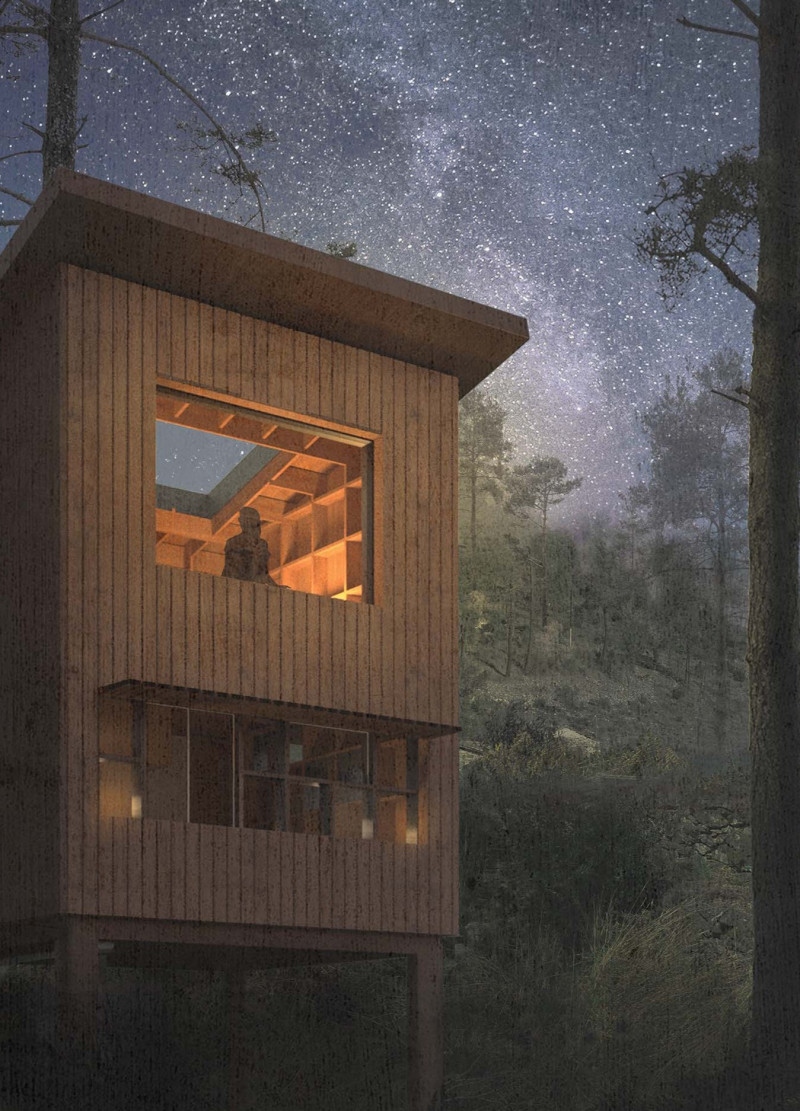5 key facts about this project
The design decomposes the retreat experience into three distinct yet interconnected elements—body, mind, and soul. This triadic approach is expressed through the spatial and material organization of the building. Ground levels are dedicated to yoga and meditation spaces, while the upper portion allows for reflection and connection with the cosmos, facilitated by strategically placed skylights.
Sustainable design features enhance the project’s functionality and environmental responsibility. Notable materials used in the construction include Lustitanica oak for framing, cork for insulation, and traditional Japanese joinery techniques. These materials reinforce the project’s commitment to durability, temperature control, and craftsmanship. The integration of no-waste plumbing and cross-ventilation emphasizes an eco-conscious practice, minimizing the building’s ecological footprint.
The project distinguishes itself through its organic shapes and the use of natural materials that harmonize with the landscape. Its modular design accommodates future adjustments, reflecting a flexible approach to architectural planning. Circular circulation paths enhance movement fluidity throughout the space, promoting an immersive experience that aligns with the principles of yoga.
The skylight feature plays a crucial role in the design, allowing occupants to engage with the cosmos, further deepening the spiritual aspect of yoga practice. The open-plan upper floor maximizes natural light and airflow, creating an inviting atmosphere for reflection and mindfulness.
In summary, this architectural design exemplifies harmony between structure and environment, prioritizing user experience and sustainability. For further exploration of the architectural plans, sections, and design ideas, readers are encouraged to delve deeper into the project's presentation. The insights gained will provide a more comprehensive understanding of the architectural approach and the unique elements contributing to the retreat’s overall vision.


























